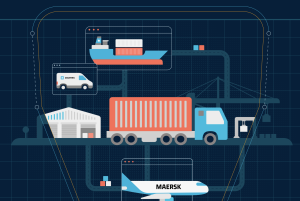 In April Rio Tinto announced that it would reverse a decision to extend payment terms for suppliers. One of the world’s biggest miners, it had planned to double its payment terms in a move that would have forced its suppliers to wait up to 90 days to be paid.
In April Rio Tinto announced that it would reverse a decision to extend payment terms for suppliers. One of the world’s biggest miners, it had planned to double its payment terms in a move that would have forced its suppliers to wait up to 90 days to be paid.
Rio Tinto is not alone in (wanting to) extend payment terms.
Extending terms is a great example of “leveraging suppliers” who, themselves, have invested in facilities, employees and inventories in the most corners of the globe just to support the customer.
But it’s not sustainable, says Bill Michels, CEO and founder of Aripart Consulting.
“Cash-starving the suppliers who extend an organisation’s capability is irresponsible; it starves investment, innovation, growth and quality. Does that sound sustainable?”
Michels cites The Unsuitability of Extended Payment Terms, an article which highlights major food producers like Mondelez, Mars, Kellogg’s, Church & Dwight, Anheuser-Busch In Bev and Heinz who extend payments to suppliers from 90 to 120 days.
“In many cases the suppliers to the food industry are agricultural industries surviving crop-year to crop-year. This industry requires capital to acquire the seed, fertiliser and equipment, which is all at risk in volatile commodity markets,” said Michels.
Big Companies Pay Later Squeezing Their Suppliers says that companies like Mondelez are using the cash for a stock buyback initiative. Kellogg’s is financing a restructuring project and P&G has added significantly to its cash flow.
“The end result is a cash-poor supply chain that cannot withstand interest rate hikes or another financial crisis. We have been fortunate the past few years that money has been virtually free, enabling this practice. However, in the long term it is not sustainable and many of the smaller suppliers in many supply chains will be in trouble when conditions change.”
Michels recalls a Fortune 500 customer that owed him money, but hadn’t paid invoices dating as far back as seven months for work done according to a contract.
"On that day, the customer’s project manager told me that I would be paid the following week if I would discount the fees owed. I had little choice but to grant a discount at the time—credit was extremely tight and we were owed a lot of money. The payment terms for this client were 90 days, plus I had three other clients who had moved to 90-day terms, so having a customer stretch payments as much as 180 days was a true crisis.
“I couldn’t tell my employees that I couldn’t pay them because the customer hadn’t paid, so I maxed out the business line of credit and borrowed the max on my house to pay salaries and bills for the business.”
“I’ve never forgotten the $1-billion+ company that used my small business as the bank…”
Are you requiring suppliers to act like a bank?


























